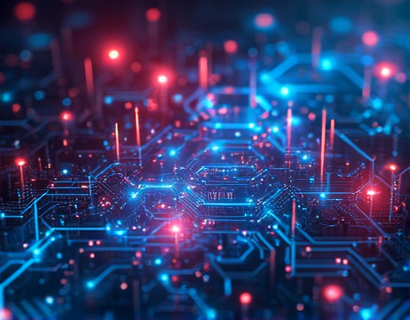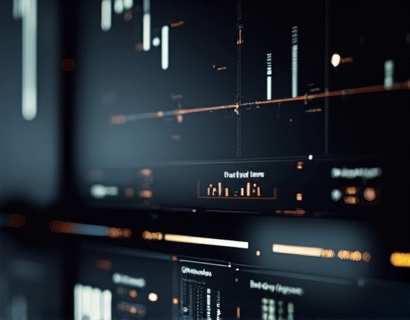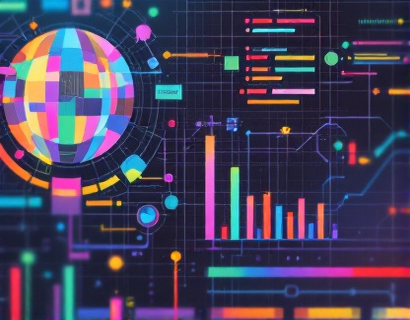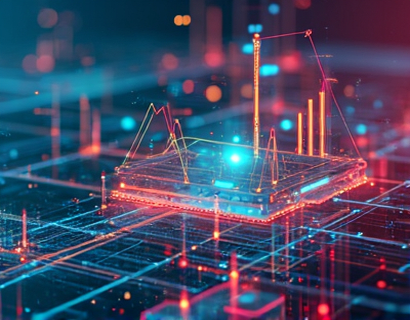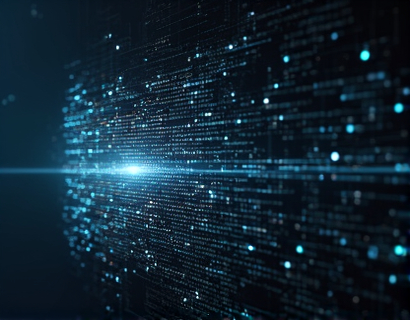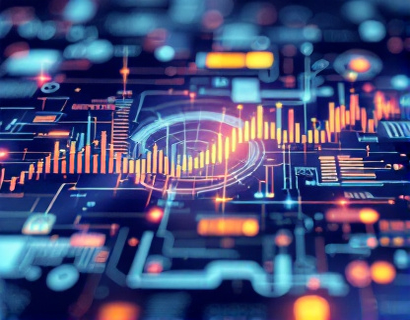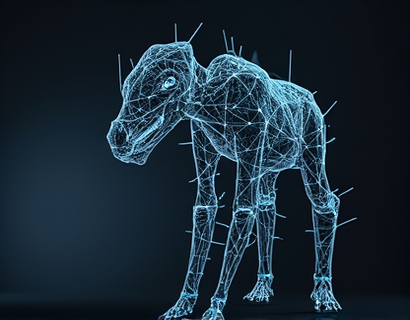Decentralized Authentication: Revolutionizing Business Security and Access with Advanced Technology Solutions
In the rapidly evolving landscape of digital security, businesses are increasingly turning to decentralized authentication solutions to bolster their defenses and streamline access control. These advanced technology solutions offer a paradigm shift from traditional centralized authentication methods, providing enhanced identity management that ensures both seamless user experiences and robust data protection. For modern enterprises, the adoption of decentralized authentication is not just a strategic advantage but a necessity to stay ahead in a world where cyber threats are becoming more sophisticated by the day.
The core principle behind decentralized authentication lies in distributing the control and management of user identities across a network of nodes, rather than relying on a single central authority. This approach eliminates the single point of failure that centralized systems are prone to, significantly reducing the risk of large-scale breaches. By leveraging blockchain technology and distributed ledger systems, decentralized authentication solutions create a secure and transparent environment where user identities are verified through consensus mechanisms, ensuring that only authorized individuals gain access to sensitive systems and data.
One of the primary benefits of decentralized authentication is the enhanced security it provides. Traditional authentication methods often depend on centralized databases that store user credentials, making them attractive targets for hackers. In contrast, decentralized systems store identity information across multiple nodes, making it far more difficult for malicious actors to compromise the entire system. Even if one node is breached, the decentralized nature of the network ensures that the attack is contained, and the overall system remains secure. This distributed approach not only fortifies defenses against external threats but also mitigates the risk of insider threats and human error.
Moreover, decentralized authentication solutions offer superior compliance with regulatory standards. With the increasing number of data protection regulations such as GDPR, CCPA, and others, businesses must ensure that they handle user data with the utmost care. Decentralized systems inherently support these regulations by providing transparent and auditable trails of identity verification processes. Users have greater control over their personal data, as they can manage and revoke access permissions directly, without relying on intermediaries. This level of control not only builds trust with customers but also helps organizations avoid hefty fines and reputational damage associated with data breaches.
Another significant advantage of decentralized authentication is the improved user experience it offers. Traditional authentication methods often result in cumbersome login processes, frequent password resets, and frustrated users. Decentralized solutions, on the other hand, can integrate seamlessly with various devices and platforms, enabling single sign-on (SSO) and multi-factor authentication (MFA) without compromising on security. Users can access multiple services with a single set of credentials, reducing the complexity and time required for authentication. This streamlined experience not only boosts user satisfaction but also increases productivity by minimizing disruptions caused by authentication issues.
From a technical standpoint, decentralized authentication leverages advanced cryptographic techniques to secure identity verification. Public-key infrastructure (PKI) and digital signatures play a crucial role in ensuring that user credentials are both secure and verifiable. Each user has a unique public-private key pair, where the private key remains securely stored on the user's device, and the public key is shared with the authentication network. When a user attempts to access a system, their private key signs a request, which is then verified by the network using the corresponding public key. This process guarantees that the user is who they claim to be, without exposing sensitive information.
Furthermore, decentralized authentication solutions are highly scalable and adaptable to the growing needs of businesses. As organizations expand and integrate new systems, decentralized identity management can easily accommodate these changes without requiring extensive overhauls of existing infrastructure. The modular nature of these solutions allows businesses to add or remove components as needed, ensuring that the authentication system remains efficient and up-to-date with the latest security standards.
In addition to security and user experience, decentralized authentication contributes to operational excellence by reducing the administrative burden on IT departments. Centralized systems often require constant monitoring and maintenance to prevent breaches and ensure smooth operations. Decentralized solutions automate many of these tasks through smart contracts and self-sovereign identity protocols, freeing up IT resources to focus on strategic initiatives. This automation not only enhances efficiency but also reduces the risk of human error, leading to a more reliable and resilient authentication process.
The adoption of decentralized authentication is not limited to large enterprises; small and medium-sized businesses can also benefit from these advanced solutions. For smaller organizations with limited IT resources, decentralized authentication provides a cost-effective and easy-to-implement alternative to traditional methods. Cloud-based decentralized identity management platforms offer scalable services that can be tailored to meet the specific needs of any business, regardless of size. This democratization of advanced security technologies ensures that all organizations, big or small, can protect their assets and maintain compliance with industry standards.
Looking ahead, the future of decentralized authentication holds even more promise. Integration with emerging technologies such as artificial intelligence (AI) and the Internet of Things (IoT) is set to further enhance the capabilities of these solutions. AI can be used to detect and respond to anomalous behavior in real-time, providing an additional layer of security. IoT devices, which are increasingly becoming part of enterprise ecosystems, can leverage decentralized authentication to ensure that only authorized devices gain access to critical systems. This holistic approach to security will be essential as the number of connected devices continues to grow exponentially.
In conclusion, decentralized authentication represents a significant leap forward in business security and access management. By offering enhanced security, improved user experience, and operational efficiency, these advanced technology solutions are becoming an indispensable tool for modern enterprises. As cyber threats evolve, the ability to adapt and implement robust authentication mechanisms will be crucial for businesses aiming to thrive in a digital-first world. Embracing decentralized authentication is not just a choice but a strategic imperative for any organization serious about safeguarding its assets and maintaining a competitive edge.








